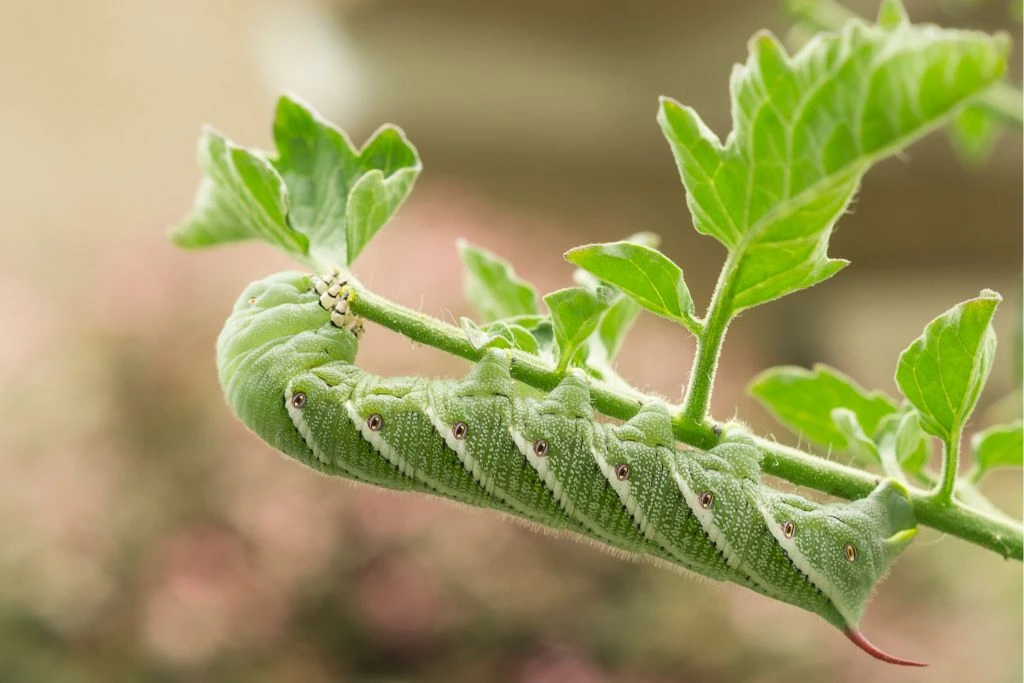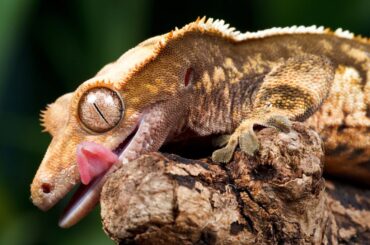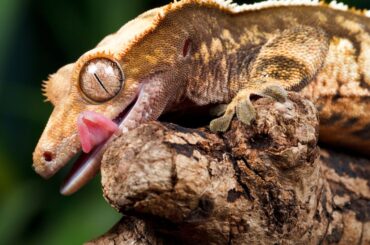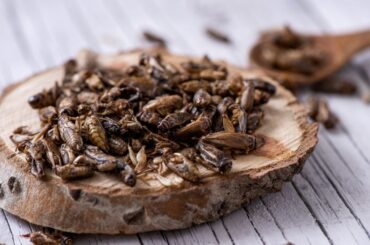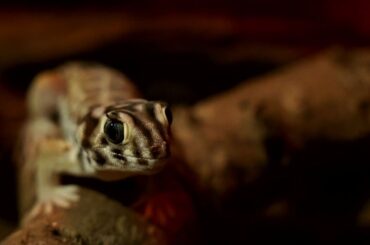Yes, leopard geckos can eat hornworms because they find them tasty. These worms are high in moisture and will keep your leopard geckos hydrated.
It is best to feed leopard geckos with hornworms in moderation, however, because they can be addictive and turn them into picky eaters, which you do not want.
Are Hornworms Good for Leopard Geckos?
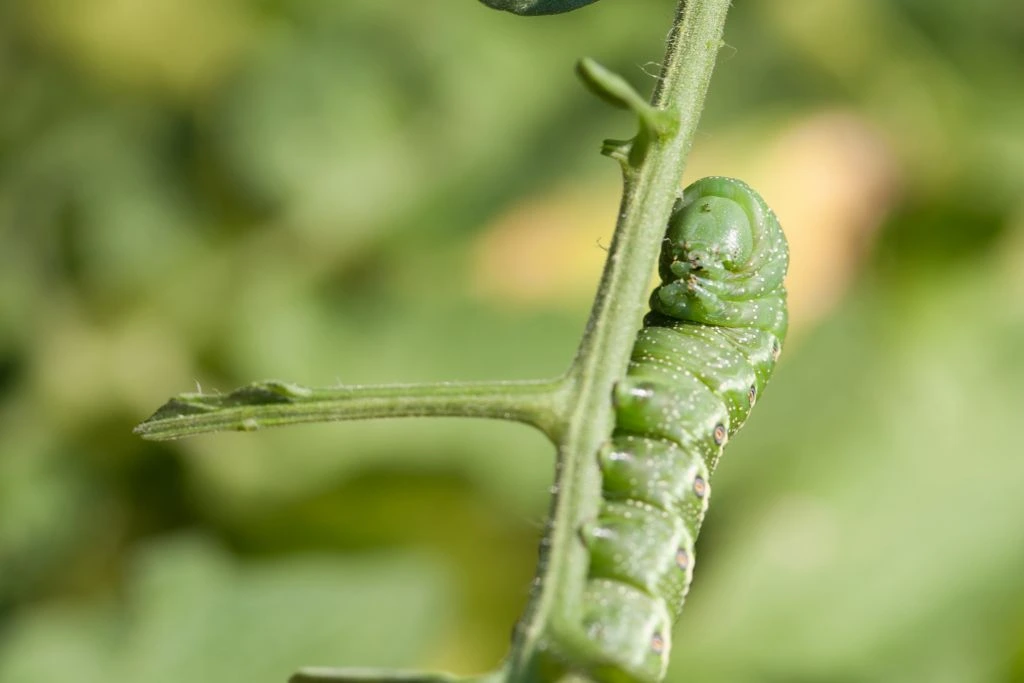
Hornworms are generally not dangerous to your leopard gecko, but hornworms can carry parasites.
When purchasing hornworms from a store, look for hornworms that are free of parasites, such as tiny ticks or mites. It’s best to buy refrigerated hornworms because the cold kills most parasites and makes them safe for your leopard gecko to eat.
Are Hornworms Healthy for Leopard Geckos?
Hornworms are high in protein, calcium, and other nutrients that leopard geckos require. They also have reduced fat and are an extremely healthy food item for your leopard gecko.
Hornworms have soft skin that your leopard gecko can easily digest, so your leopard gecko shouldn’t experience any digestion issues when eating hornworms.
The Nutritional Value of Hornworms
Hornworms contain 9% protein, 3.0% fat, 46mg calcium per 100g, and 85% moisture. These hornworms are more nutritious than other worms, which is good for your leopard gecko.
Hornworms have a high moisture content, which is ideal for leopard geckos that are prone to dehydration.
Do Leopard Geckos eat Hornworms in the Wild?
No. Since hornworms are not native to most of the world, leopard geckos rarely consume them in the wild. Leopard geckos can consume hornworms in their larval state in areas where they are present.
Leopard geckos are not picky eaters, and hornworms can be a good addition to their diet. Hornworms should only make up a portion of your pet’s diet, as the leopard gecko cannot survive solely on hornworms.
How to Feed Hornworms to Leopard Geckos?
Feeding leopard geckos is usually simple. It is sufficient to provide the necessary number of insects quickly, and then let them go hunting.
The best option is to feed your leopard gecko one to four hornworms per month, no more than three to four times per month, depending on age.
Baby Leopard Gecko
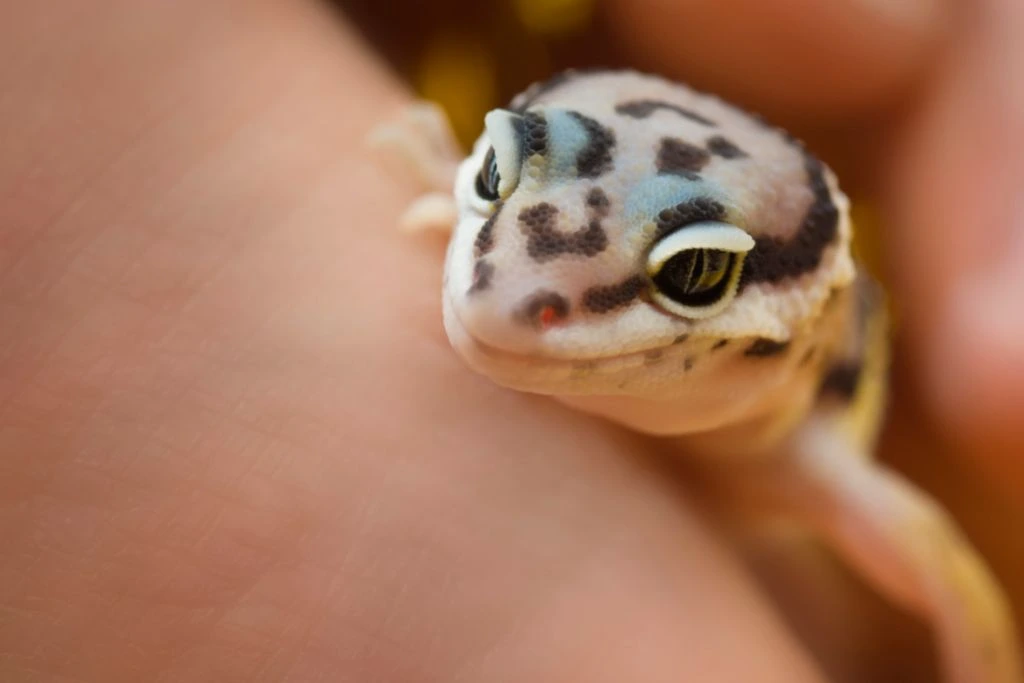
Baby leopard geckos cannot consume fully-grown hornworms because they are too large. The best option is to feed your baby leopard gecko three meals daily, including small and simple-to-digest hornworms. On the other hand, leopard geckos, aged six months to a year, require food only once or twice a day.
Baby leopard geckos can safely eat hornworms, but only in small amounts. Some experts say feeding a baby leopard gecko four hornworms is completely safe and nutritious.
Juvenile Leopard Gecko
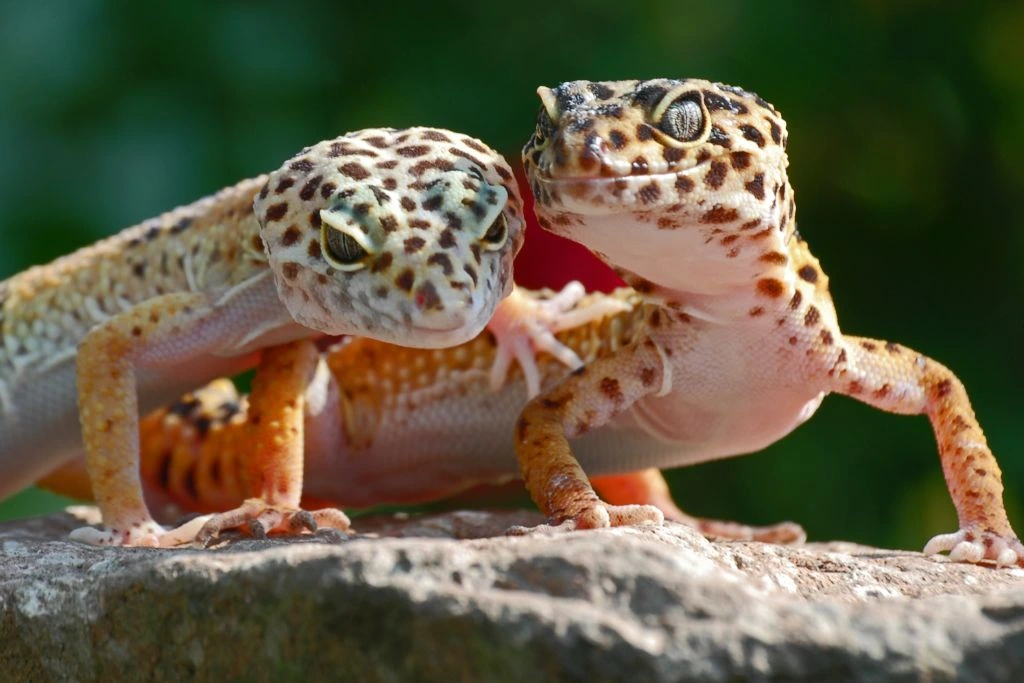
Juvenile leopard geckos can safely eat one to three small hornworms in a sitting. Small, young hornworms are ideal prey for juvenile leopard geckos. Their small size and soft skin make them easy to digest, and they make excellent appetizers for young leopard geckos.
You can slow the growth of hornworms in juvenile leopard geckos by keeping them in a cold, dark environment, preferably at around 50 to 60 degrees Fahrenheit.
Hornworms can also be stored in the refrigerator for up to 48 hours without harm. Please don’t leave them for too long, however, or they’ll perish.
Adult Leopard Gecko
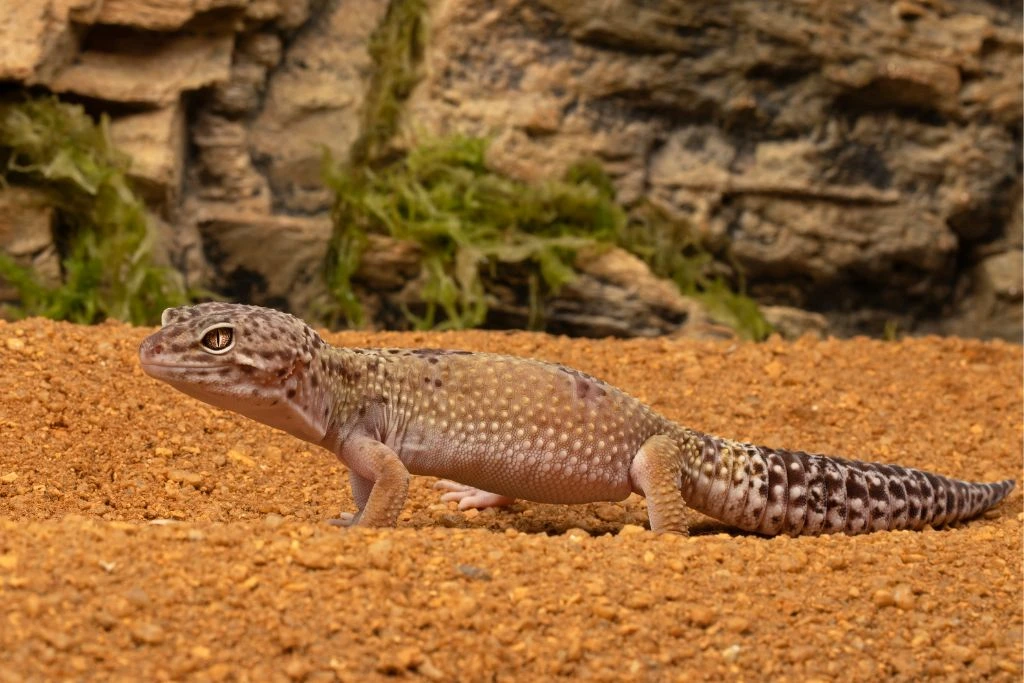
You should feed an adult leopard gecko three to four hornworms at a time. More than this can lead to your leopard gecko becoming overweight and sick.
Hornworms are nutritious and healthy when consumed in moderation.
How Many Hornworms Should You Feed a Leopard Gecko?
The general rule is to prevent overfeeding your leopard gecko to avoid regurgitation and weight gain. The quantity of food offered, including hornworms, must be precisely calculated based on the leopard gecko’s age.
Adults can eat one large hornworm, two to three medium-sized hornworms, or three to four small hornworms once a week.
To avoid choking, never give your juvenile geckos a large hornworm. You can, however, feed it one medium-sized or one to three small hornworms twice a week.
Baby leopard geckos must only eat one small hornworm per week.
Most leopard geckos adore hornworms and will eat them all, no matter how often you offer them. On the other hand, some picky eaters will not even touch these caterpillars as a treat. It would be best if you refrained from forcing your leopard gecko to eat this food. Select other worms and insects that will work better.
How Often Can You Feed Hornworms to a Leopard Gecko?
As stated above, leopard geckos can eat hornworms once or twice per week, but not more. If you feed your leopard gecko hornworms too frequently, leopard geckos will become obese and sick.
A leopard gecko may also prefer hornworms and deny other foods. Leopard geckos require a varied and balanced diet, so feed hornworms in moderation alongside several other food sources.
Hornworms are highly addictive to Leopard Geckos, so be cautious that they don’t start refusing to accept other food sources in pursuit of hornworms. Their nutritional requirements won’t be met.
Other Food You Can Feed Your Leopard Gecko
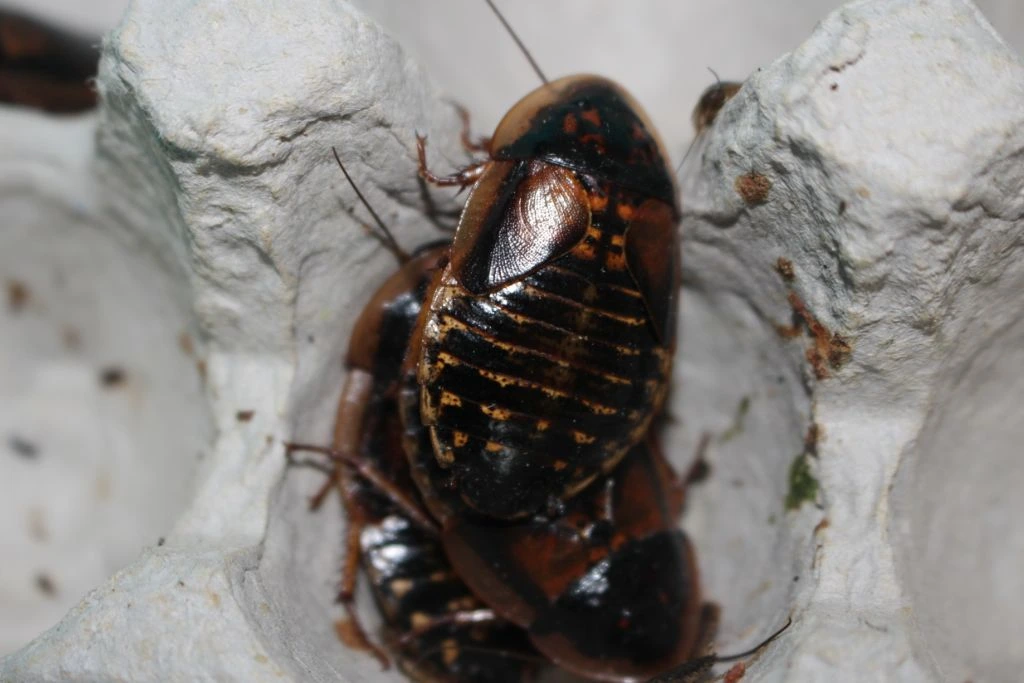
Proteins are essential in the diet of leopard geckos. It is essential to provide low-fat content food because such species are prone to gaining weight.
No matter what combination you create, it is nearly impossible to provide all the ingredients for your pet by providing them only hornworms. Most worms are deficient in proteins and have an excessive amount of fat.
The best option is to provide enough insects as a primary food and supplement with worms for diet variety, or as a snack or treat. Mealworms, for example, are a nutritious and delicious staple food for your gecko, especially when combined with crickets.
A healthy gecko diet ought to include the following:
- Beetles
- Black soldier fly larvae
- Plant bugs
- Silkworms
- Crickets
- Grasshoppers
- Locusts
- Red runner roaches
- Dubia roaches
- Discoid roaches
- Cockroaches
Super worms, butter worms, and waxworms all have a high-fat content. Only adding two or three per week is recommended to keep your leopard gecko from gaining weight.
To avoid addiction and malnourishment, you should never feed your leopard gecko hornworms as a primary source of nutrition.
Conclusion
Hornworms are spongy, full of water, and calcium-rich, making them a nutritious snack for your leopard gecko.
Even so, they contain little protein and are quite large, making them a choking hazard for your pet. Only feed them these worms in moderation and choose the right size.

